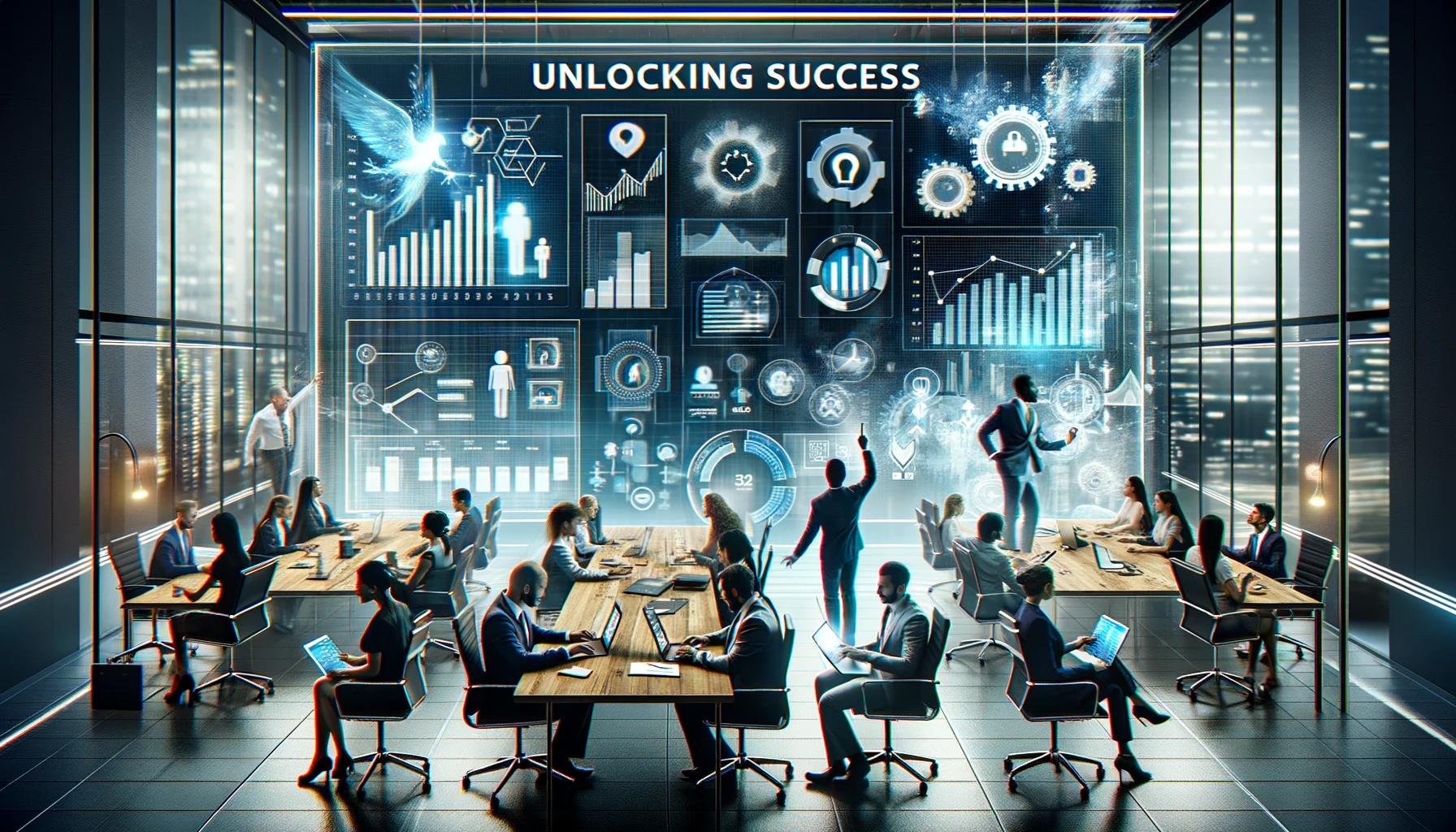The Future of Blockchain Technology: Potential and Uncertainty
Introduction
The future of blockchain technology is shrouded in potential but with an element of uncertainty. Nevertheless, the underlying distributed ledger technology has the ability to streamline processes and cut costs across a wide variety of industries. For these reasons, many believe that blockchain tech will eventually become ubiquitous with applications far beyond those we can currently imagine.
In this article, we'll take a look at some of the potential applications of blockchain technology and explore the challenges that it faces in becoming mainstream.
Quick Overview
What is Blockchain Technology? How Does it Work?
At its simplest, a blockchain is a decentralized database that stores immutable information about transactions. This information is stored in 'blocks' which are then chained together to form a 'blockchain'. Each block contains a hash, a timestamp and a link to the previous block, meaning that it is not possible to alter transaction data after the fact without changing all subsequent blocks in the chain.
Check out the following video for full info:
In order to understand the future of blockchain technology, it’s super important that you understand how the underlying technology works!
The Benefits of Using Blockchain
Blockchain technology has a number of potential benefits which include:
1. Transparency and accountability – blockchain provides a tamper-proof record of transactions that can be verified by anyone. This makes it an ideal solution for situations where transparency and accountability are necesseties, such as in the financial sector.
2. Reduced costs and processing times – blockchain technology can streamline processes and reduce costs as there is no need for a third party to verify transactions. In addition, the blockchain network is able to process transactions much faster than traditional networks.
3. Increased security – blockchain is a secure and transparent system that is resistant to fraud and hacking. This makes it an ideal solution for storing sensitive data or handling transactions.
4. Decentralization – blockchain is a decentralized system which means that it is not controlled by any one party. This makes it resistant to censorship and allows for a more democratic and open system.
Many believe that it’s these benefits that will make the future of blockchain technology a bright one.
How to Get Started With Blockchain
If you're interested in blockchain technology and want to find out more, there are a number of ways to get started. You can:
1. Join a blockchain community – there are numerous online and offline communities dedicated to blockchain technology (eg Aus DeFi). This is a great way to learn about the latest developments in the space and meet other like-minded individuals.
2. Attend a blockchain event – there are many blockchain events taking place around the world. These events provide an excellent opportunity to network with others in the space and learn about the latest projects and developments.
3. Use a blockchain platform – there are many blockchain platforms available which allow users to create and manage their own blockchain applications. This is a great way to get hands-on experience with blockchain technology.
4. Invest in blockchain – there are many blockchain-based projects and companies that are seeking investment. This is a great way to support the development of blockchain technology and potentially make a profit if the project is successful.
5. Partner with a developer – blockchain developers, like us here at Devwiz, are in high demand. However, if you don’t know the ins and outs of smart contract development or coding languages like Solidity or Rust, speaking to a developer or dev agency is your best bet. It’s our opinion that agencies and blockchain developers, in general, will be the ones to dictate the future of blockchain technology.
Potential Applications
Potential Applications of blockchain technology

There are a multitude of potential applications for blockchain technology. Some of the most promising include:
1. Supply chain management: Using blockchain tech to track the movement of goods and ensure that they are not counterfeit or stolen. This would help to improve supply chain efficiency and reduce costs;
2. Financial services: Using the blockchain to streamline the process of transferring money, making it faster, cheaper, and more secure;
3. Healthcare: Storing and sharing patient data, allowing for improved data security and interoperability;
4. Voting: Smart contracts create secure, transparent, and tamper-proof voting systems;
5. Real estate: The process of buying and selling property is streamlined via automated smart contracts and a trustless system;
6. Identity management: You can create secure and tamper-proof digital identities;
7. Copyright and royalty protection: the blockchain can protect intellectual property and ensure that creators are properly compensated for their work;
8. Social media: blockchain tech can create decentralized social media platforms that are not subject to censorship or manipulation;
9. Prediction markets: Decentralized markets for making predictions about future events will live in the blockchain;
10. Machine learning: The blockchain can be used to create decentralized machine learning networks that are not controlled by a single entity.
These are just some of the potential applications of blockchain technology. It is likely that we will see many more emerge in the years to come, further boosting the potential future of blockchain technology.
Challenges of Blockchain Technology
Despite all these use cases of blockchain technology, there are also a number of challenges that it faces in becoming mainstream. These include:
1) Scalability – at present, blockchain networks are not able to handle large numbers of transactions due to their limited scalability. This is a major obstacle that needs addressing before blockchain can be adopted on a large scale.
2) Interoperability – another challenge facing blockchain is the lack of interoperability between different blockchains. This means that different blockchain networks are not able to communicate with each other, which limits their usefulness.
3) Regulation – blockchain technology is currently unregulated in most jurisdictions. This lack of regulation creates uncertainty and risk for businesses and investors, who may be hesitant to adopt the technology.
4) Security – despite the increased security that blockchain provides, there have been a number of high-profile hacks of blockchain-based projects. This highlights the need for improved security measures to protect users' data and assets.
Despite the challenges blockchain technology faces, many believe that it has the potential to revolutionise a wide variety of industries. For this reason, it is important to keep up to date with the latest developments in this space.
Blockchain Technology: Future Outlook
Blockchain technology is still in its early stages, and there are a number of challenges that it faces, as mentioned above. However, there are many who believe in its potential to revolutionise a wide variety of industries.
As blockchain technology continues to develop, we can expect to see more use cases emerge. In the long term, blockchain technology has the potential to change the way we interact with the digital world.
If you have an idea for an NFT or DeFi platform, or would just like to know more about our blockchain development services, please get in contact any time!
Latest Blogs

May 2, 2024
Unlocking Success in Tech Project Management: Essentials for Entrepreneurs
If you're an entrepreneur or executive, mulling over how to manage your tech projects with efficiency, this article is for you. Peek into the world of successful tech project management, exploring effective project planning techniques and agile project management strategies. We’ll guide you on how to navigate project milestone tracking methods and bolster productivity with collaborative team communication tools.

April 26, 2024
Understanding the Core Principles of User-Centered Design – A Guide for Entrepreneurs
Unlock success with the principles of user-centered design. Bringing together elements of empathetic, human-centered concepts and user interface principles, this strategy ensures digital products align with actual user needs and desires.

April 23, 2024
Master Effective Debugging Techniques: Tips & Tools for Software Developers
You've got a tricky application behaviour that's not making any sense, and you're stuck again? Today we tackle one of the most challenging aspects of programming - debugging. In this piece, we focus on effective debugging techniques, offering insight into software debugging methods and debugging best practices.

